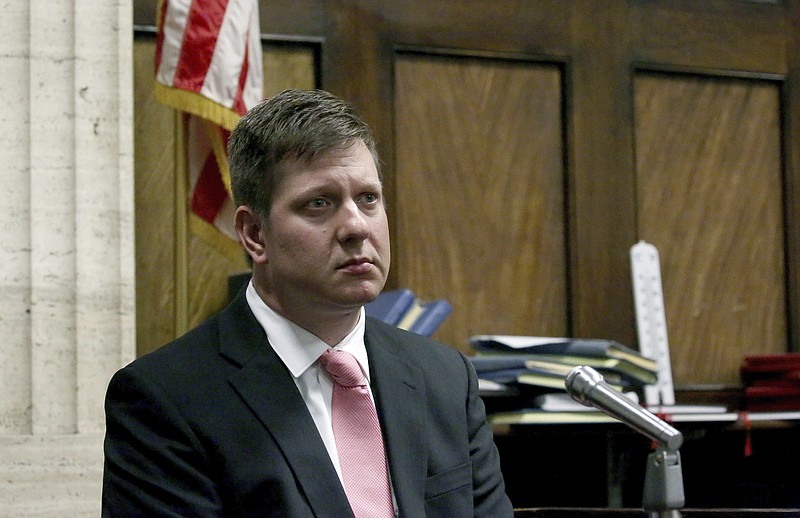CHICAGO (AP) - Since late 2015, the public has known that police who witnessed the fatal shooting of Laquan McDonald described a scene starkly different than the one that later emerged on video of a white officer pumping 16 bullets into the black teenager.
The announcement Tuesday that three officers have been charged with lying about that night raises questions about why it took so long to bring charges and underscores how tough it is to battle the code of silence long associated with the Chicago Police Department and other law enforcement agencies across the country.
"Even though the police brass had seen this video, knew what was on it, each of the reports of these officers was approved all the way up the chain of command," said Craig Futterman, a University of Chicago law professor who has studied the department and was part of the legal team that fought the city over its refusal to release the video.
The officers who knew there was a video, he said, knew they could lie because "the CPD has allowed that for far too long."
Not until November 2015, more than a year after the Oct. 20, 2014, shooting and well after the city agreed to pay McDonald's family $5 million to avoid a lawsuit, did the city release the video. Officials acted only after a judge ordered them to do so.
The fact that there was a video and that video was released, Futterman said, is the only reason Officer Jason Van Dyke faces a charge of first-degree murder and the only reason why the other officers now face obstruction of justice and conspiracy charges.
Without the video, if McDonald had lived, "he would have been charged with aggravated assault or attempted murder," he said, based on the officers' reports that alleged McDonald raised his arm as if to stab Van Dyke with a knife and attempted to get up from the pavement, still armed with the knife, after he was shot.
Another legal expert said that while she doubts the three officers would have been charged without the video, the fact that they were charged based on obvious discrepancies between their reports and the video sends a powerful message to both police and the public.
"People on the scene get the message that the officer may not be indicted for pulling the trigger, but you could be for lying about it," said Christy Lopez, a Georgetown University law professor who led a federal probe of the city's police force.

